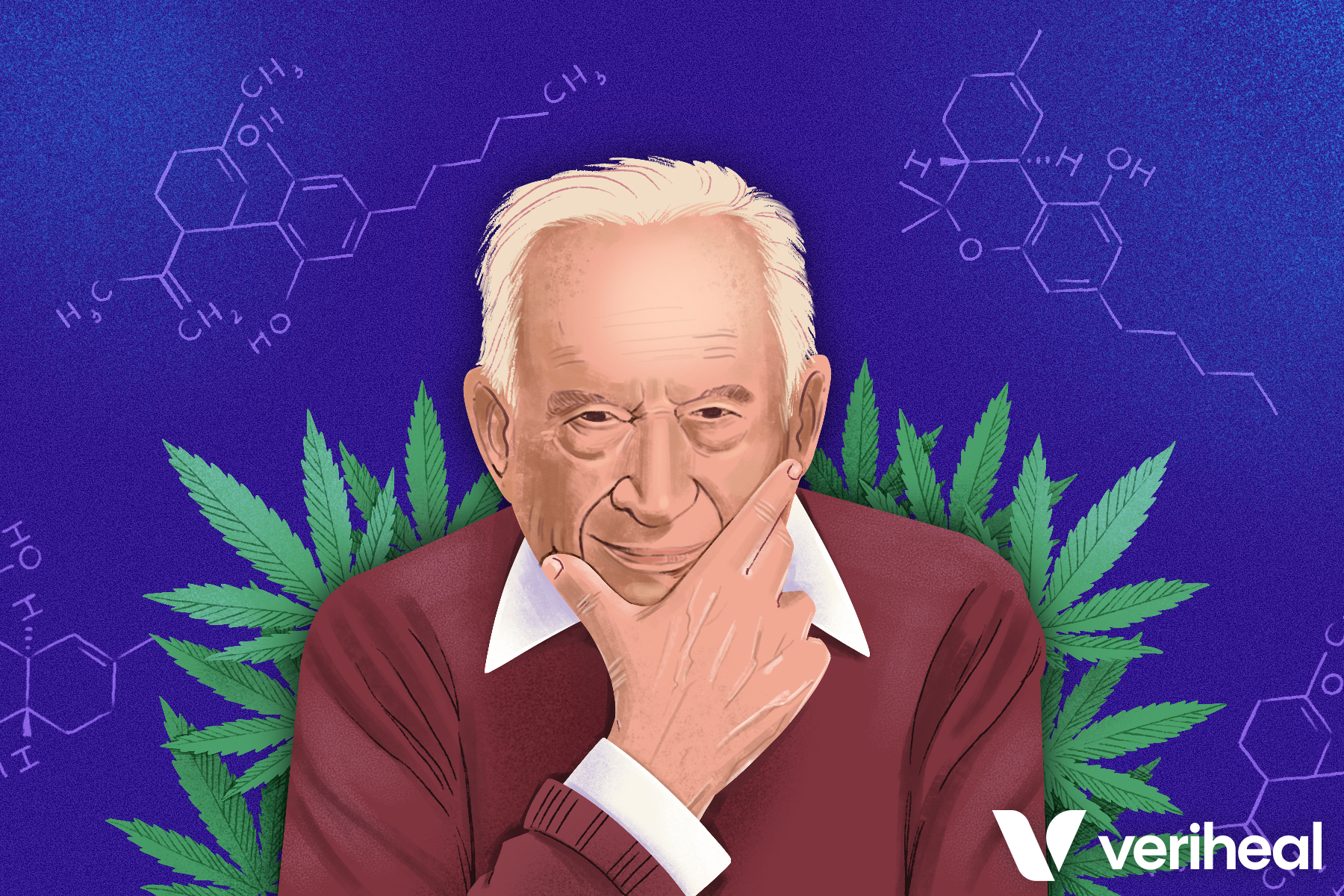On Nov. 5, 1930, “the father of cannabis research” was born. From the Black Sea-encapsulated mountainous terrain of Bulgaria, Professor Raphael Mechoulam immigrated to Israel, where he would make a legendary name for himself as a pioneer in medical cannabis research.
More than one month since his departure from this world, and the cannabis industry continues to mourn Dr. Mechoulam’s absence. Mechoulam, a professor of medicinal chemistry at the Hebrew University, died on March 9 at his home in Jerusalem. He reached the ripe old age of 97.
The acclaimed organic chemist was a proud member of Hebrew University’s faculty since 1966. Asher Cohen, the university’s president, described him as a “sharp-minded and charismatic pioneer.”
Had it not been for Prof. Mechoulam, the landscape of cannabis research and the cannabis industry as a whole would likely be very different. Among his many contributions was the first ever isolation of tetrahydrocannabinol (THC) — cannabis’ primary psychoactive cannabinoid.
“Most of the human and scientific knowledge about cannabis was accumulated thanks to Prof. Mechoulam. He paved the way for groundbreaking studies and initiated scientific cooperation between researchers around the world,” said Cohen.
A Glimpse Into the Life of Professor Mechoulam
Shortly after relocating to Israel at the age of 19, Mechoulam began studying chemistry. Two decades later, he made his foray into the world of medical research. This fed the late professor’s interest in marijuana which, at the time, had not yet been isolated.
In a curious bid to lift the brakes on academic studies into cannabis, Mechoulam and his colleagues at the Weizmann Institute of Science in Israel launched an intense research effort into the green plant. Prior to the project’s commencement, he obtained some buds from the local police.
Despite the fact that cannabis was classed as a “controlled substance” under U.S. law in 1970, Mechoulam was not deterred. Two years later, he moved to the Hebrew University of Jerusalem, where he continued his studies for the rest of his life.
Aside from isolating and synthesizing cannabis compounds and proving the plant’s medicinal potential, he also invested his efforts into proving that cannabis can treat autoimmune diseases and epilepsy.
Why You Should Get Your Medical Marijuana Card
Veriheal has satisfied millions of patients nationwide by giving them access to these benefits
- Larger purchase limits
- Peace of mind
- Enhanced legal protection
- Access to higher potency strains
- Save up to 25% on cannabis purchases
- Skip the line at the dispensary
In 1993, some decades after his move to Jerusalem, Mechoulam and his team published a study in the journal Nature about cannabis use in the ancient Middle East. What they discovered was quite astonishing – ashes found in the 4th-century Roman tomb of a young female who died during childbirth actually belonged to the cannabis plant.
“They obviously gave her something to ease the pain or to do something with the hemorrhage she was apparently undergoing. We thought that it might be cannabis,” Mechoulam accurately conjectured before the findings were released.
During the 90s he also discovered the endogenous counterparts of THC: anandamide in 1992 and 2-arachidonoylglycerol in 1995.
An Endless List of Achievements Spread Across Six Decades
Professor Mechoulam’s career stretched over six decades, during which he threw himself into cannabis’ chemical makeup, determined to understand its safety and efficacy as a medicine.
“I believe cannabinoids represent a medical treasure waiting to be discovered,” is one of his most famous (and still relevant) quotes.
Endless hours in the laboratory led to the discovery of numerous cannabinoids, such as cannabigerol (CBG) and tetrahydrocannabivarin (THCV). While there are still hundreds of active cannabis compounds yet to be experimented with, there’s no denying the fact that Mechoulam achieved many miraculous things.
For example, back in the late 1980s and early 1990s, the Professor and his team discovered the endocannabinoid system (ECS). He also played a pivotal role in the development of the first FDA-approved CBD-based medication for epilepsy patients, Epidiolex.
His efforts never went unnoticed and he was nominated for over 25 academic awards, including the Heinrich Wieland Prize (2004), the Israel Prize in Exact Sciences – Chemistry (2000), and EMET Prize in Exact Sciences – Chemistry (2012).
“I have spent most of my life decoding the mysteries to be found within this incredible plant. The collective work on the plant has currently led to identifying a major physiological system, the ECS, which appears to be involved in numerous human illnesses. I would like to see my colleagues forge ahead with their investigations, advancing even further the acceptance and integration of cannabinoids, in particular cannabidiol, its derivatives and the specific CB2 agonists, in traditional medicine.”
Why not venture deeper into the life of Dr. Mechoulam with “The Scientist”? This documentary tells his story from his childhood days during the Holocaust in Bulgaria. Click here to watch it on YouTube.
Author, Share & Comments







